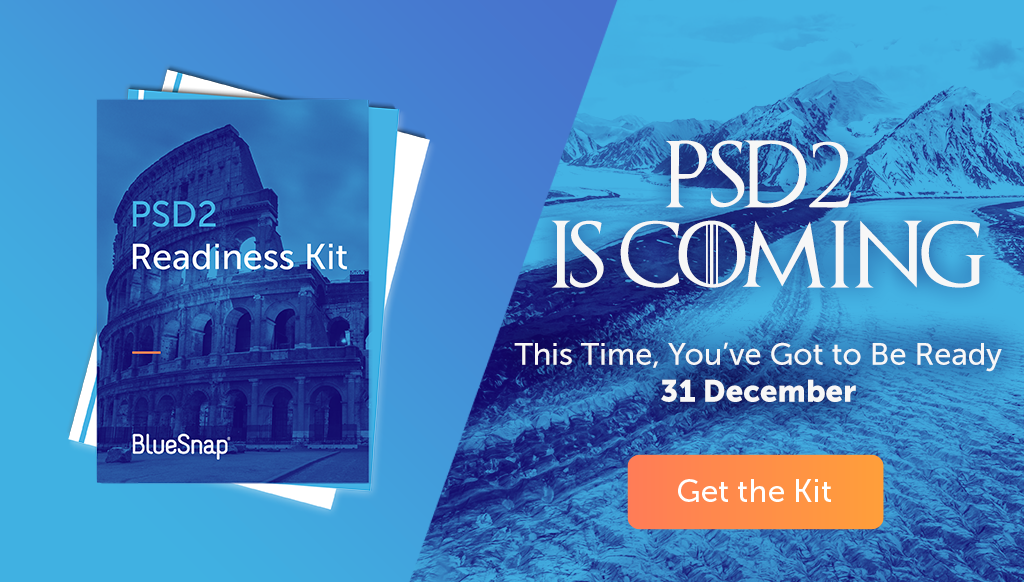Over the past few years, several European payment regulations impacting data, security, payments and banking, have changed the course of global eCommerce. In this quickly evolving landscape, many independent software vendors (ISVs) are left wondering: How will this impact my business? And what can I do to stay afloat?
Initially, you might have baulked at these new regulations, worried about the wrench they’d throw in your day-to-day operations — but the truth is, if you can learn to adapt, these regulations present an opportunity to enhance your processes, not hinder them.
Let’s dive into the European regulation affecting ISVs the most — PSD2, the impact it’s having on marketplaces and the steps you can take to ensure compliance.
What Is PSD2?
The Second Payments Services Directive (PSD2) came into effect in early 2018, setting forth stricter requirements for electronic payments, including increased transparency into payments processes and greater protection over consumers’ own financial data. Dates have been extended and companies doing business in the European Economic Area (EEA) must comply by 31 December 2020. While some countries may postpone further (for example, the UK enforcement date is now 14 September 2021), most are adhering to this end-of-year deadline so compliance is recommended.
For customers that rely on ISVs for payment services, PSD2 means lower fees, reduced risk of fraud and greater visibility into the payments process. However, for businesses and online retailers that do business in the EU, PSD2 now prevents you from engaging in traditional models of payments management. For example, businesses that send goods to consumers from the closest regional supplier are no longer allowed to pull customers’ money into their own accounts and settle it with the most relevant, cost-efficient supplier after the fact. The flow of money must now go directly through a regulated payments institution for a more secure and streamlined customer experience.
This requirement has the potential to cause a number of issues for many ISVs, because the process of handling those payments directly by becoming your own payments institution is costly, time-consuming and complicated. But non-compliance with the new directive will lead to fines initially, and later, your business could be shut down altogether — so unfortunately, non-compliance is not an option.
Learn more about growing your business in an increasingly regulated global economy.
What Can You Do to Comply?
Short of becoming your own payments institution, which comes with unnecessary costs and financial risks, you need to streamline the operational flow of funds using regulated third-party providers who can manage that flow for you.
You could try to find multiple providers that supply parts of the process and then piece them all together. But between a regulated eWallet provider, a subscription provider, reporting capabilities and a file transfer system to ensure the funds are reconciled properly against each transaction that’s taken place, that’s a lot of different accounts and integrations to juggle.
To avoid the IT headache caused by multiple, disparate solutions, you could partner with an All-in-One Payments Platform like BlueSnap. With one integration, one account and one platform with everything you need built in, you can easily manage payments under the new directive with few additional costs and no need for radical changes to your day-to-day business processes.
The good news is, if you can find the right partner to handle your payments under the new regulations, this will ultimately be a better, more appealing solution for your customers. Buyers today are expecting financial services that are fast, transparent and with few additional fees, and if you can meet those expectations with an integrated payment service provider, then you can differentiate yourself from your competitors.
Global Businesses Require Global Compliance
In today’s global economy, taking payments from around the world just makes sense — but that doesn’t mean it doesn’t come with its own set of challenges. Now that you understand the European regulation most relevant to ISVs and its impact on the way you do business, it’s time to take action.
By partnering with a regulated payments institution like BlueSnap, you can ensure the flow of funds through your business happens smoothly, easily and with little risk of fraud or failed payments.


